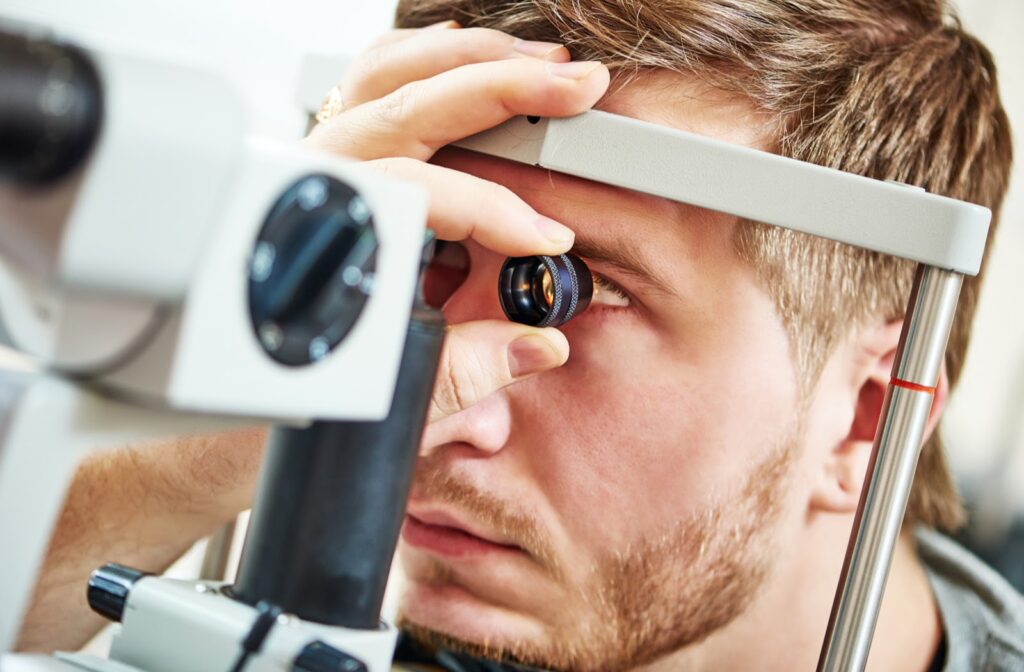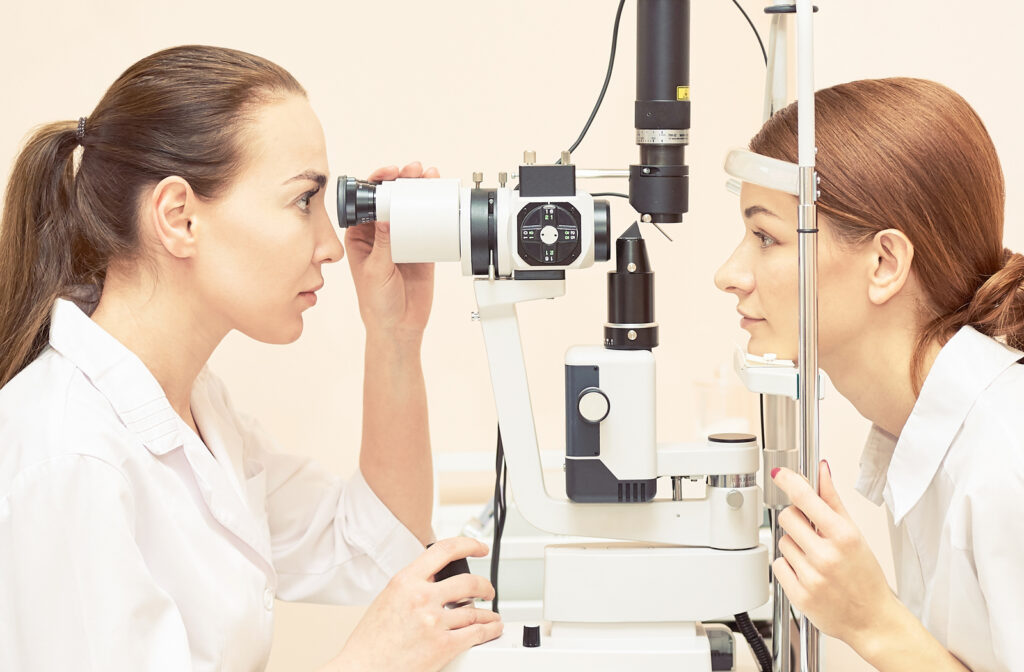If you are concerned about developing an eye disease, a dilated eye exam can be the most effective way to diagnose and start treating an eye disease early into its development. Dilated eye exams involve dilating your pupil to allow your eye doctor to see into your eye more clearly. If you want to learn more information about dilated eye exams, you can contact our office and schedule an appointment.
What Is a Dilated Eye Exam?
Dilating your pupil will allow more light to enter your eye. Dilation helps the doctor check for common eye problems, including diabetic retinopathy, glaucoma, and age-related macular degeneration.
A dilated eye exam is an effective way to check for eye diseases early on when they’re easier to treat and before they can cause any vision loss.
A dilated eye exam will begin with the doctor checking for vision problems that make it hard to see clearly, like myopia or hyperopia. Afterward, your doctor will give you some eye drops to dilate your pupil and check for eye diseases.
Since many eye diseases have no symptoms or warning signs, you can be completely unaware if you have a condition that will eventually cause vision problems. A dilated eye exam will help catch eye diseases early on and make the treatment options for your specific condition more effective as a result.
For a few hours after a dilated eye exam, your vision may be blurry and you may be sensitive to light, so you will need a friend or family member to drive you home from your appointment.
If your eye doctor finds any refractive errors during the exam, you may get a prescription for eyeglasses or contact lenses.
How Often Do You Need a Dilated Eye Exam?
How often you need a dilated eye exam will depend on your risk of developing an eye disease. Get a dilated eye exam every 1 to 2 years if you:
- Are over the age of 60
- Are African American and over the age of 40
- Have a family history of glaucoma
If you have diabetes or high blood pressure, converse with your doctor about how often you need an exam. People with diabetes or high blood pressure might need to get a dilated eye exam at least once a year.

What Happens During a Dilated Eye Exam?
A dilated eye exam includes:
- A visual acuity test: Your doctor will ask you to read a letter chart to test how well you see in different settings.
- A visual field test to check your peripheral vision: Your doctor will test your ability to see objects off to the sides of your vision while staring straight ahead.
- An eye muscle function test to check for problems with the muscles around your eyeballs: Your doctor will ask you to follow the motion of an object around with your eyes.
- A pupil response test to check how light enters your eyes: Your doctor will shine a small light into your eyes and check how your pupils react.
- A tonometry test to measure the pressure in your eyes: Your doctor will use a machine to blow a puff of air onto your eye or gently touch your eye with a special apparatus. This process is completely painless.
- Dilation to check for problems with the inner parts of your eye: Your doctor will give you some eye drops to dilate your pupil so they can check for eye diseases.
Do I Need a Dilated Eye Exam?
Whether or not an eye dilation during an exam is necessary for you depends on the reason for your exam, your age, your overall health, and your risk of eye diseases.
Eye dilation will assist your doctor in diagnosing common diseases and conditions at their earliest stages. Some common diseases include:
Pupil dilation will make your vision blurry and your eyes more sensitive to light, which, for a few hours, can affect your ability to drive or work. So if eye dilation would be greatly inconvenient for you, you should ask your doctor about arranging an appointment for another time. Alternatives to dilation are available, but they aren’t as effective for allowing a careful examination of the back of your eye.
When determining whether or not a dilated eye exam is necessary for you, your eye doctor may consider the following:
- Your age: The risk of developing an eye disease increases with age.
- Your general eye health: Having a history of eye diseases that affect the back of the eye, such as retinal detachment, may increase your risk of future eye problems.
- Your overall health: Certain diseases, such as diabetes, increase the risk of eye disease.
- The reason you are seeking an eye evaluation: Certain symptoms of eye diseases may require a dilated examination to determine their cause. Some conditions that will require follow-up examinations may not need dilation at every visit unless there are new symptoms or concerns.



